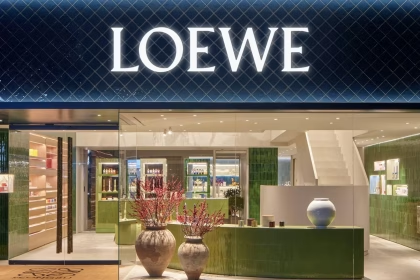Shein investors are selling their stock at a 30% discount represents a clear reflection of the prevailing market uncertainty. This unexpected sell-off suggests a sudden shift in investor confidence and raises questions about the future of the once-booming fast fashion retailer. As Shein, the fast-fashion e-commerce giant, continues to skyrocket in popularity, this move seems counterintuitive at first glance. However, it is essential to delve deeper into the market dynamics and underlying factors to gain a more nuanced understanding of this development.
Over the past few years, Shein has become one of the largest fast fashion retailers, particularly in the United States. According to available estimates, Shein generated an annual revenue of $22.7 billion in 2022. This represents a significant increase from previous years and highlights the company’s rapid growth in the fast fashion industry. Furthermore, Shein has projected that its revenue will reach $60 billion by the year 2025.
Favored by the digital-savvy Gen Z demographic, Shein has built a substantial online presence, leveraging social media platforms and influencers to reach a wide audience. It has experienced significant growth and its market share has surpassed competitors such as H&M, Zara, and Forever 21. Additionally, Shein’s market capitalization has reached $47 billion and it holds a 50% market share in the US. The fast fashion company has also secured a valuation of $100 billion, making it the largest fashion retailer in the world.
However, recent rumors of investor unease have now manifested into tangible action, as a sizeable volume of equity was traded on secondary markets at prices far below previous valuation highs. This mass selloff, executed at a steep discount, hints at underlying concerns that may not be immediately evident to the public eye.
Financial analysts speculate that the sharp sell-off could be attributable to a variety of factors including, but not limited to, potential regulatory scrutiny, challenges in the often turbulent global supply chain, or even a recalibration of sustainable and ethical practices, which has been an increasingly prominent issue in the fast fashion industry. Moreover, the broader economic climate has been characterized by heightened volatility, possibly urging investors to reassess the risks associated with high-growth ventures.
Major shareholders typically seek to divest at market value or higher, thus the decision to accept a lower price is significant, suggesting a prioritization of liquidity or preemptive hedging against potential future declines. Some experts propose that internal metrics or prospective financial statements may not align with the skyrocketing valuations previously attached to Shein.
Factors Influencing the Discounted Stock Sale:
Market Correction: The stock market often undergoes price corrections, where investors adjust their positions to align with perceived market values. The discounted stock sale by Shein investors may reflect a broader market correction, with investors taking profits or reducing exposure due to concerns about the sustainability of Shein’s growth trajectory. Shein’s meteoric rise may have led to an overvaluation of its stock. With increasing competition and changing market dynamics, investors may be reevaluating their expectations for future growth, thus discounting the stock price to reflect a more realistic valuation.
Lawsuits: There are several ongoing lawsuits involving Shein. These lawsuits include allegations of copyright infringement, racketeering, and design theft. One lawsuit accuses Shein of copyright infringement and racketeering. Three graphic designers have filed a lawsuit against Shein, alleging that the company engaged in “egregious” copyright infringement by stealing and making exact copies of their designs to sell on its website. Another lawsuit accuses Shein of stealing artists’ designs and making exact copies to sell on its platform. In addition to these intellectual property-related lawsuits, Shein also faces a lawsuit filed by Uniqlo, a Japanese fashion brand. Uniqlo alleges that Shein copied its viral shoulder bag design and is seeking damages.
Forced Labour claims: Shein is currently facing labor claims related to the alleged use of forced labor in its supply chain. A group of US lawmakers has called for an investigation into Shein over claims that Uyghur forced labor is used to manufacture some of the clothes it sells. According to the lawmakers’ letter, there are concerns that Shein’s audits of its facilities may be easily manipulated or insufficient to ensure labor right. The fast fashion giant has denied using Uyghur forced labor and stated that it works with third parties to conduct audits of its facilities. However, experts argue that these types of audits can be easily manipulated.
Additionally, concerns about forced labor in Shein’s supply chain have been raised in relation to the company’s Initial Public Offering (IPO). US lawmakers have called on Shein to demonstrate that forced labor is not being used to produce its products and to provide transparency regarding its labor practices. However, experts argue that these types of audits can be easily manipulated.
Economic Uncertainty: The global economy has faced unforeseen challenges due to the COVID-19 pandemic. Investors might be factoring in potential economic downturns or a protracted recovery process, leading to a more cautious approach to investments and the sale of Shein stock at a discount.
Conclusion
The decision by Shein investors to sell their stock at a 30% discount reflects inherent market uncertainties about the future of Shein. While the fast fashion giants success story continues to captivate consumers and investors alike, it is essential to consider the broader market landscape and variable factors shaping investor sentiment. Ultimately, the discounted stock sale may serve as a recalibration in response to changing market dynamics and a necessary risk management strategy on the part of Shein investors.

















